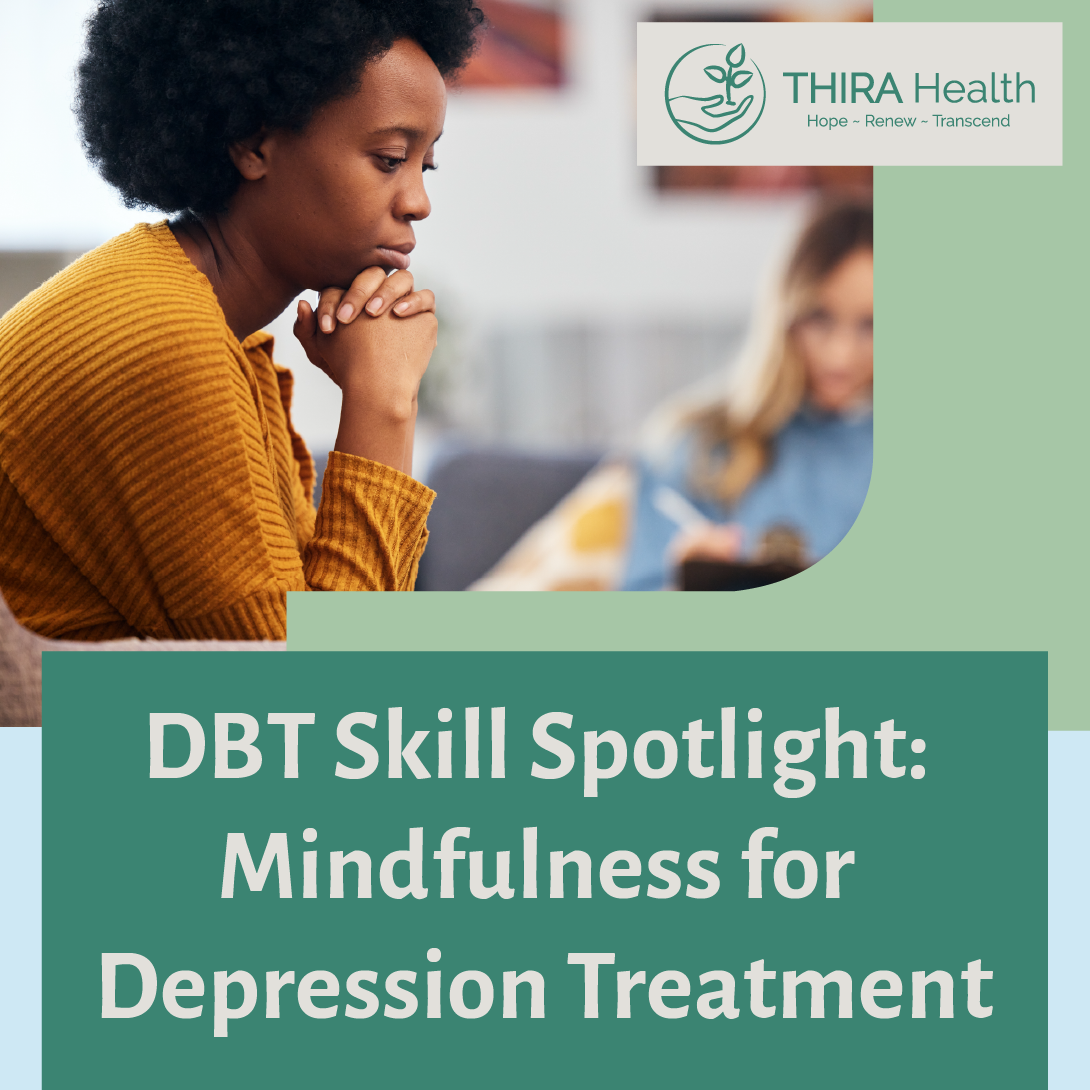
The most powerful mental health tips are the ones that you can use on your own or in therapy—and today, we’ve got four of them!
The catchall umbrella for most types of talk therapy, including Dialectical Behavioral Therapy, is cognitive behavioral therapy. Based on the idea that our behavior is altered by the things we think and feel, this group of therapies seeks to change how we interact with our emotions and perceptions.
Dialectical Behavioral Therapy (DBT) specifically works to balance extremes of both mood and feeling. It can support you in reshaping your interactions from an exaggerated interpretation of a valid emotion to a space where finding a more realistic and manageable expression feels doable.
How Does DBT Help Boost Your Mood?
To boost your mood with DBT, you must spend time with the moods that feel deeper and darker. Instead of removing those instances, we will focus on understanding them so you can find growth and healing anywhere you find yourself.
#1 DBT Encourages Understanding and Describing Your Experience Instead of Avoiding It
The power of DBT is rooted in returning to a place of understanding. Each of your emotions has a purpose, and understanding why you feel what you feel can help lighten the load of the more painful emotions. Understanding yourself, environmental cues, and the emotions they bring on will enable you to look at your thoughts with a clear lens unclouded by agitation or uncertainty.
#2 DBT Emphasizes the Power of Positive Actions
Positive action is a mental health tip that contributes to DBT’s success by using the things you do and can control to help you take back your power over your thoughts and feelings. While you can’t make yourself stop feeling anxious every time your boss calls you, you can make the conscious decision to wrestle back control from your anxiety by doing something you enjoy.
One of the greatest things about positive action is that you can always fit it in, no matter how busy you are, how tired you are, or what your emotions are telling you. Positive actions can be something like listening to a favorite song or taking 15 minutes to read that new book you’re excited about. Alternatively, they can also be things like taking a weekend trip away or knocking that long-awaited item off your bucket list.
Positive action gives you ownership over what you accomplish and how that makes you feel. Doing this can help offset the negative feelings you feel you have little control over, or at least offer you respite from them when they get to be too much.
#3 Achieving Consistent Growth Rewrites the Balance
Being able to note, on a regular basis, the kinds of things you’re checking off your list empowers you to keep going. DBT encourages you to set small, regularly attainable goals to help you remain motivated. This mental health tip ensures you’ll see regular progress toward success that helps you to feel more confident in what you’re doing.
The magnitude of growth isn’t found in reaching the goal itself. Instead, you want the recurrent reinforcement of your ability to succeed, so the wins you’re achieving regularly combat your “can’t win” mentality. It’s like a snowball effect of motivation, and your balance of positive wins continues to grow as you move toward the goals you set—no matter their size.
#4 Better coping mechanisms help you prepare in advance
A large part of dialectical behavior improvement is rooted in the ability to see both sides of the proverbial coin. When you’re approaching an experience or emotion that makes you feel uncertain, proper preparation can go a long way toward moving confidently through it.
Whether you’re preparing for an interview or a night out with friends you haven’t seen in a while and you’re worried about feeling confident, you can cope with those fears by making a plan. Get enough rest, eat wholesome foods, keep your headspace clear, and set aside time before and after for meditation. Writing a plan can help make it more real to you and therefore more likely to happen. Written plans don’t have to complex or long – a simple list of things can often suffice to get you prepared.
Making these plans is a mental health tip that helps you reduce the variables that lie outside your control, helping you feel empowered in the now so you can cope with whatever comes your way.
#5 DBT isn’t “better” than other therapy; it just might be better suited for you
People who benefit most from DBT are those who are prone to “catastrophizing” (jumping to the worst-case scenario immediately) and those who struggle to see the other end of the spectrum at any given time. It’s an effective tool to find a middle ground that feels authentic for pessimists and optimists alike.
If you are prone to feeling like everything is the end of the world or, alternatively, that you must always look on the bright side, DBT can help you create space for reactions that are authentic and centered instead of extreme. The mental health tools it builds within you will become your superpower to a mood-boosted and more confident you.
Characterized by an emphasis on acknowledging the duality of emotions, DBT creates space for accepting what is instead of constantly looking for what could be. Here at THIRA Health, we want to create space for whatever you need today. Whether you’re looking for a mood boost or positive action or to learn more about our partial hospitalization treatment for eating disorders and other conditions, we’re here for you.






